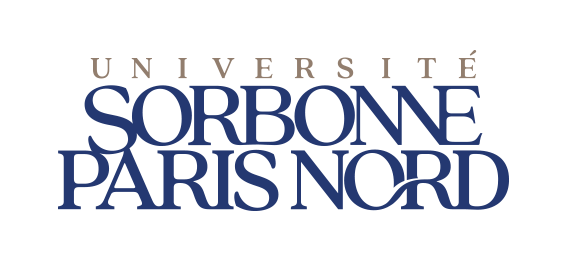Program objectives
The first year of the program is made of two core semesters of
broad-spectrum Informatics classes. It gives students the
necessary skills to tackle in-depths subjects in the second
year of the program.
The specialty P2S aims to provide students with the basic
elements allowing them to work in the computer business or
start research in a laboratory or a company. The training
provides the basic techniques related to software applications
(development methodology and design, programming tools,
safety, including in a web environment) while studying the
basic concepts necessary (logics and interaction, automata,
software specification).
Program overview
The cornerstone of this Master's program in Informatics lays
on a tight link bridging the university's research and
teaching vocations. This strong connection is realized through
elective orientation and discovery classes allowing students
to define their professional goals. In the second year of the
Master's program, part of the third semester offers several
concentrations each with their specific curriculum, while
still keeping a common core of foundational, discovery and
cultural “TUs” (Teaching Units). The fourth semester is
devoted to an internship specific to each concentration and
that can focus on either research careers or engineering
careers.
Performance assessment
• Year-long tests and final exams
• M1 (first year) thesis and M2 (second
year) internship: written report and oral defense.
Admission requirements
• M1: students can be admitted into the
first year (M1) or second year (M2) of the program. In general
however, admission is selective into the first year to any
student holding a Bachelor's degree in informatics.
• M2: to be admitted in the second year of
the Master's program, students must pass the first year of a
Master's degree in IT. Admission is granted by the president
of the University upon the recommendation of the program's
director. The program's director requests the opinion of a
jury on each student's ability to perform in the second year
of the program. For students coming from other Master's
programs (mathematics and IT, statistics, Applied IT for
Business Management…), admission may be granted upon review of
the applicant's background in Informatics.
Career placement
• Jobs: graduates from the Master's degree
in Informatics generally find employment as:
- Software and
information systems architect,
- Internet/intranet/extranet site architect,
- Open source migration project manager,
- High-level designer of multi-tier systems,
- Researcher (thesis) in the fields of logic for programming
or system specifications and modeling assistance.
• Fields: in high-tech areas of
Aeronautics, Automotive, Telecommunications, Automatisms,
Robotics, Energy, Laboratories, Banks, Insurance companies,
service and applications IT, Retail.
Further education
After graduating from the Master's program, students can get
into PhD programs with research teams within the LIPN and
within other partnering labs such as the LAMSADE (Université
Paris 9), the LIP6 (Sorbonne Université), the LRI and the
LIMSI (Université Paris-Saclay) or any other university or
industry lab, as well as with the IFSTTAR, INRIA, INRA,
CENAGREF, IRD and IGN. Funding opportunities for PhD research
are available with Cifre scholarships.
M1: Semester 1 (S1)
First week: Review (10 h of Algebra and 10 h of Analysis)
Foundational TU (1)
• Advanced data structure (4 ECTS
credits)
• Fundamentals of programming (5 ECTS
credits)
• Database engineering (5 ECTS credits)
3 Discovery TUs
• Algorithmic geometry (4 ECTS)
• Dynamic systems specification
(4 ECTS credits)
• Exploratory data
analysis (4 ECTS credits)
• IT networks (4 ECTS credits)
• Knowledge representation (4 ECTS
credits)
• Security and information
theory (4 ECTS)
• Transition systems &
model checking (4 ECTS credits)
Transversal TU
• English (2 ECTS credits)
• Communication and Writing Techniques (2
ECTS credits)
• Free (Sport, International Mobility,
Associative Activity) (Bonus)
M1: Semester 2 (S2)
Foundational TU (2)
• Compilation (5 ECTS credits)
• Distributed Java programing (5 ECTS
credits)
3 Orientation TUs
• Algorithmics on words (4 ECTS
credits)
• Constraint programming (4
ECTS credits)
• Distributed systems (4 ECTS
credits)
• Internet of Things (4 ECTS)
• Matrix factorization methods
for data mining (4 ECTS credits)
• Operational research (4 ECTS
credits)
• Research initiation (4 ECTS)
• System administration (4
ECTS credits)
Transversal TUs
• English (2 ECTS credits)
• Communication and Writing Techniques (2
ECTS credits)
• Project leading and managing (4 ECTS
credits)
• Free (Sport, International Mobility,
Associative Activity) (Bonus)
M2: Semester 3 (S3)
Module (SSS): Specification, Safety and Security
• Programs and Proofs
(3 ECTS)
• High Level
Petri Nets (3 ECTS)
• Complex
Systems Spécification (3 ECTS)
• Safety and Security (3 ECTS)
(3 ECTS)
Module (PLE): Programming, Languages and Environments
• Advanced and ubiquitous JavaScript (3
ECTS)
• Open
Development Environments (3 ECTS)
• Advanced
languages and environments (3 ECTS)
• Modular and
resilient programming (3 ECTS)
Transversal TU
• English (2 ECTS credits)
• Innovation (2 ECTS credits)
• Soft skills (2 ECTS)
• Free (Sport, International Mobility,
Associative Activity) (Bonus)
M2: Semester 4
2 Deepening TUs
• Abstraction and refinement (3 ECTS)
• Data flow and programming (3 ECTS)
• Decision-making support (3 ECTS)
• Grids and cloud computing (3 ECTS)
• Human-Machine Interaction (3 ECTS)
• Infinite, timed and hybrid systems (3
ECTS)
• Learning visual representations (3 ECTS)
• Learning, constraints, planning (3 ECTS)
• Quantum computing (3 ECTS)
• Social network analysis (3 ECTS)
• Speech analytics (3 ECTS)
• Textual data processing (3 ECTS)
• User eXperience design (3 ECTS)
Internship
The fourth semester is targeted to the writing of a
dissertation during an internship in either a laboratory or a
company.
• Industry/Laboratory internship (24 ECTS
credits)



